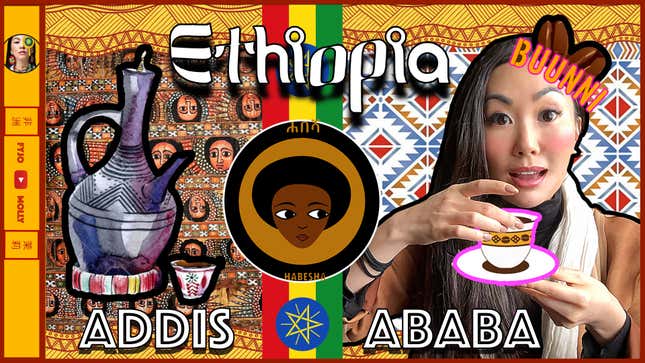When Beijing-born video producer, Fyjo Molly, relocated from Berlin to Johannesburg three years ago, she was enthusiastic about the move. It would be her first time in Africa, but as someone who enjoys immersing herself in different cultures, she was looking forward to the new experience.
She fell in love with Johannesburg, a city that she felt had very little in common with most of what she had seen and heard in mainstream media. In 2018, she decided to work on a collaborative video project with a 10-person team from China. Eventually, only two members of the team traveled to Johannesburg with the rest stating they had concerns regarding “safety and disease in Africa.”
Molly says, “I knew that China’s mostly state-ran mainstream media offered a very simplistic, sometimes biased view of the continent, but I had not realized the extent to which it affected everyday people’s opinions.” It was then that she decided that she was going to share her experiences on the continent to show the Africa most Chinese people do not get to see.
Earlier this year, she launched her Instagram and YouTube channels with the goal of challenging stereotypes prevalent in Chinese and western media. She does this through making fun, quirky videos of her experiences in South Africa, but also when traveling round the continent to countries including Ethiopia, Zambia and others.

The story of another Chinese vlogger on the continent follows a different path but has similar objectives to Molly. Shanghai-born Zhao Huiling was 12 when her family moved from China to Ghana where she lived until she was 18 years old. In a recent episode of the China Africa podcast, she talks about a fun, exciting childhood filled with lots of friends and adventures.
When she returned to China as a young adult, she grew frustrated with the stereotypes of Africans rampant in Chinese popular culture. With Africa becoming an increasingly popular travel destination for Chinese people, she found herself being asked more and more to give recommendations on where people should go, what they should do, what it is like to travel and live in Africa etc. She decided to feed this curiosity and tackle the ignorance in her own words, “showcasing Africa’s great, vibrant, creative scene to a Chinese audience.”
Early this year, Huiling launched a new video series in Mandarin on Chinese social media channels like WeChat and also video versions with English subtitles on YouTube. Her videos attempt to challenge the stereotypes about Africa that are in traditional Chinese media as she takes her viewers along with her on her exploration of different African countries focusing on culture and food.
Chinese abroad
While much of the China in Africa discussion has naturally focused on business, trade and infrastructure, as the Chinese middle class has expanded rapidly over the last two decades so has their interest and capacity for to travel for leisure.
Chinese travel abroad has tripled in the past decade with Chinese tourists globally spending $277 billion in 2018, almost twice as much as Americans. In the past decade too, air traffic between Africa and China has jumped over 600%.
Of the 130 million foreign trips Chinese travelers made in 2017, only 0.62% of them, were in African countries, showing though that while the figure is rising, the continent’s share in China’s tourist boom is only a dip in the ocean. Additionally, most current tourists only visit the “typical” tourist sites on the continent, rarely leaving the beaten track.
These relatively small figures of tourists and their chosen mode of tourism is intuitive when one understands the common perceptions of Africa depicted in the West. “Big buses, large groups, umbrellas, crazy hats and shopping” is how a recent video from Quartz‘s Because China series on Chinese tourism describes the typical China tour company offering. In Africa, this type of tourism is amplified as the continent is still seen as somewhere risky.
“The average Chinese tourist will most likely be part of a giant tour group that visits the typical sites, but the tourist will leave without having had any real interaction with locals,” explains Molly. “When do Chinese and Africans speak to each other?” This cross-cultural dialogue is what both Molly and Huiling see as extremely important about their work.
“When people talk about China-Africa, we mostly focus on the economic and geopolitical aspect and the fears of exploitation, says Eric Olander, founder of the China Africa Project. “This is of course one part of the story, but where is the human story? Where is the story that takes into account the fact that Chinese and Africans are people—all part of the same humanity?”
The overwhelmingly positive reception to both vloggers especially on Chinese platforms like WeChat is evidence of the untapped interest in a different Africa story. Both of them have Chinese viewers reaching out to them expressing surprise in seeing another side of Africa. There’s plenty of interest in visiting some of the places showcased, requests for recommendations on what countries to visit and about safety.
The videos focus on topics such as art, food, fashion, music and are not too complex by topic—coffee culture in Ethiopia, best things to do in Nairobi; off the beaten path or street food in Soweto. Given the types of basic questions viewers ask, this approach seems to be the best for the mostly young middle class Chinese audience they target. Such topics serve as a fun, light-hearted entry point for showing different elements of African culture. They also have African viewers who are extremely proud of how their cultures are represented in the videos.
This is the unique aspect Huiling and Molly hope to act as a spark for better understanding and dialogue between Chinese and Africans. While the two are primarily driven by the need to change Chinese stereotypes about Africa, their videos do also capture the ignorance about China and the stereotypes that Africans have about them too.
In one of Molly’s videos, she meets with a South African dance troupe. Their main references to China as they speak is the comedic martial arts movie star Jackie Chan and enthusiastic greetings such as “Konnichi wa!” which is, of course, a Japanese greeting.
“While the average Chinese person might have absorbed a lot of negative stereotypes about Africa, the average African knows very little about China,” says Molly.
Sign up to the Quartz Africa Weekly Brief here for news and analysis on African business, tech and innovation in your inbox
